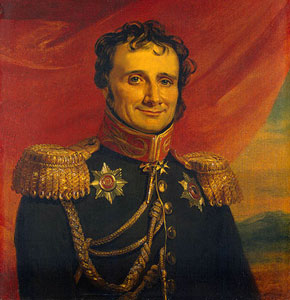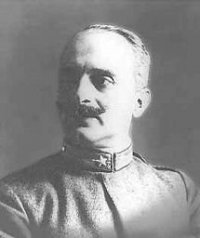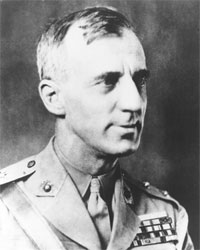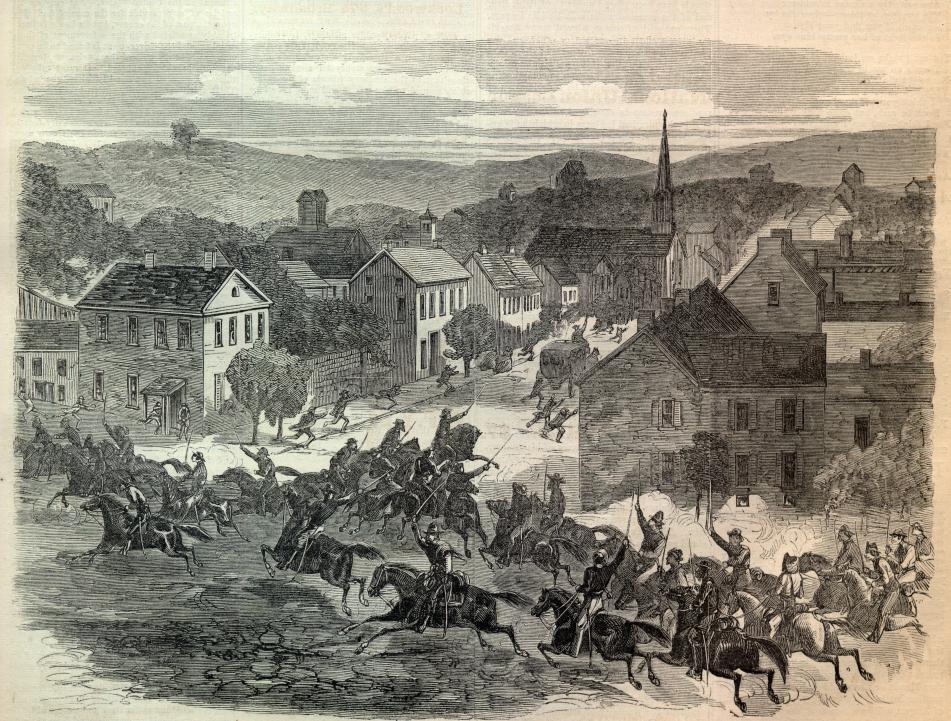
“Sun Tzu was by no means the only strategist to offer perspectives on how generals can win battles and wars.”
SUN TZU, THE renown 6th Century BCE Chinese warrior and philosopher, was once ordered by King Helu of Wu to train 180 royal concubines to engage in make-believe combat. The monarch wanted to see if the noted strategist was as brilliant as many were reporting and training the girls of his harem to fight would be a good test of the writer’s skill.
Obeying the king, Sun Tzu organized the young girls into two opposing legions of equal size. He appointed Wu’s two favourite consorts to take command of each of the armies. Next, he next instructed the two pretend generals to order their female troops to face left. The girls simply giggled at the commands. He repeated his instructions to his appointed generals, this time more sternly. Once again, they ordered their fellow concubines to face left. The girls continued to laugh off the orders. In an instant, Sun Tzu drew a sword and struck the two commanding girls dead on the spot. Instantly, the horrified harem snapped to attention and faced left. Outraged, King Helu demanded an explanation. The strategist replied he was merely following two important military axioms: First, if soldiers don’t obey orders, the officers are ultimately responsible and secondly, a warrior has to do his duty, even if it displeases the king.
An apocryphal story? Perhaps. But these two rules were certainly Sun Tzu’s. And the famous writer composed even more, which he gathered into a single volume entitled The Art of War. That book would go on to inform eastern strategic thinking for the next two and a half millennia. It’s still available today, and perhaps the most widely read military manual ever committed to paper. Its 13 chapters direct the reader on how to plan and organize an army, how to position one’s forces in the field to confuse or intimidate an opponent, how use intelligence and even how and when to attack. It reached Western audiences following a French translation in the 18th Century, although an English edition wasn’t printed until 1910. Since then, it’s been widely read in the West by politicians, students, businessmen and military professionals alike.
While The Art of War may be the oldest and most respected treatise on war ever written, Sun Tzu was by no means the only strategist to offer perspectives on how generals can win battles and wars. There have been others throughout history. Some were remarkably prescient, while others’ theories, insights and lessons were famously proven wrong. Let’s meet a few of them.

Clausewitz On War
Perhaps the most influential western military strategist of the modern era is Carl Philipp Gottfried von Clausewitz (1780 to 1831). The Prussian-born general spent much of his military career fighting the French during the war against Napoleon. At the end of his career, he amassed his considerable insights and experiences into a single volume, On War. Although he died before completing the work, his widow edited the writings and had them published in 1833. While Sun Tzu focused primarily on how to defeat an enemy in the field, On War deals with the strategic and political aspects of conflict as well. Perhaps one of the more famous concepts of the book is that war is an extension of politics and it should be waged with specific political objectives in mind. Clausewitz also suggested that while war is a form of statecraft, strategy should be viewed as an art form, with room for creativity. Battlefield tactics on the other hand are more scientific, he argued. Another often quoted concept of Clausewitz is the “fog of war” – the rush and confusion of battle, the corresponding abundance or scarcity of information and how this makes managing conflict supremely challenging. Clausewitz is still widely read today by military thinkers – a tribute to the author’s insight into the art, science and politics of waging war.

Jomini
Antoine-Henri, baron Jomini (1779 to 1869) was a more prolific writer than his contemporary von Clausewitz, but is perhaps less remembered. A native of Switzerland, Jomini served in both the French and Russian armies during the Napoleonic Wars. While with the French, he was Marshal Ney’s aide de camp. In fact, Ney picked up the tab for Jomini’s first book entitled Treatise on Grand Military Operations. After the end of the war, he returned to serve the Russians, acting as a military tutor to the Tsar and later advising the Russian government during the Crimean War. Later he would return to Paris via Brussels where in 1959 he consulted Napoleon III on how to attack Italy. He produced a string of other books, one also entitled The Art of War. Despite the lofty title, Jomini, like Clausewitz believed that armed conflict is a science and that everything from logistics, battlefield tactics and troop levels to the level of commitment of the civilian population has a measurable impact on the outcome. His works were particularly popular in the United States in the 19th Century. It’s been often reported that most high-level officers in both the Union and Confederate armies of the U.S. Civil War were well schooled in the teachings of Jomini. However, that view has recently been challenged by American historian and author Carol Reardon in the recent book The Problem of Military Thought in the Civil War North.

Command of the Air… and other fairy tales
Military aviation was scarcely a decade old when the Italian general Giulio Douhet (1869 to 1930) published his landmark work Command of the Air. The 1921 book, which immediately found an audience among both German and American military planners, foresaw that future wars would primarily be fought in the skies by strategic bombers and that land forces would be rendered largely obsolete. In Douhet’s view, even air power used to support ground forced (i.e. tactical bombing) was a passé idea. 20th Century conflicts, he maintained, would be all about high-level heavy bombers targeting strategic infrastructure and industry inside an enemy’s territory. And forget air defence, Douhet argued — militaries should focus all of their attention on bombers. The nation that could destroy its opponent’s factories, ships yards and transportation lines quickly would prevail. Douhet, a believer in the concept of total war, was also a proponent of the idea that an enemy’s will to fight could be crushed if enough bombers could drop enough bombs on enough of the enemy’s civilian population over a long enough period of time. When it was first published, Command of the Air caused a stir among military leaders and civilians alike. Army and navy commanders savaged Douhet for discounting the role of ground forces and the navy in winning wars. His theories about strategic bombing were put to the test by both the Germans and the Allies alike in World War Two. They were proven wrong — Nazi attacks on London only stiffened British resolve. A larger sustained bombing campaign on Germany failed to bring down the Nazis – it would take a Soviet ground attack on Berlin to end the war. While Japan was pounded from the air for months prior to the use of atomic weapons, it was a shortage of food, resources and manpower, and according to some historians the entry of the Soviets to the Pacific war that finally brought the Japanese to the peace table, not the bombing campaign. Many historians have pointed out that Japan was already planning to call it quits when the U.S. dropped the atom bombs. Despite the fact that Douhet’s predictions about strategic bombing were proven false, the Italian general’s was among the first to recognize the value of bombing. His book is still available in print.

War is a Racket
Major General Smedly Butler (1881 to 1940) seems like the quintessential American military hero: a 34-year veteran of the Marine Corps, survivor of several battles from China and the Philippines to Central American and the Caribbean, winner of distinguished service medals from both the army and the navy, and two-time winner of the Medal of Honor. Yet Butler had another claim to fame – he was a highly influential anti-war activist and critic of American foreign policy. In his landmark 1935 book, War is a Racket, Butler described how America’s foreign wars were primarily driven by business interests. “I spent 33 years and four months in active military service and during that period I spent most of my time as a high-class muscle man for Big Business, for Wall Street and the bankers. In short, I was a racketeer, a gangster for capitalism,” he wrote. In War is a Racket, Butler advocated that in future wars, if the west conscripted young men to fight, then industry should similarly be drafted and forced to produce war materiel on a not-for-profit basis. Why should the young men make the sacrifice while factory tycoons enjoy profits? He also proposed the idea that future war declarations be put to a referendum in which only military-aged males (those who would be doing the actual fighting) could vote. Butler also believed that wars could be prevented if countries pledged to keep their navies within 200 miles of their coastlines and armies were restricted to home territories. Butler was also famous for exposing what he called the Business Plot, an alleged conspiracy among America’s industrialists and Wall Street interests to overthrow the Roosevelt Administration in the 1930s and replace it with a more nationalist ‘pro-business’ government. While Butler was ridiculed for his warning, an investigation by Congress uncovered evidence that a coup d’état was being discussed by some wealthy capitalists, yet no charges were ever laid. While not a treatise on military strategy, War is a Racket would go onto to influence an army of anti war activists in subsequent decades.










No Ivan Bloch?
Hi Matt. Great addition to the list. I admit, I didn’t know the name until I just googled him. But I recognized the book title ‘is war now impossible?’ as well as the idea. I seem to recall a high school teacher of mine describing the book to us in a unit about WW1, more than 20 yrs ago. The idea of the 1898 book was that industrialization would make future wars prohibitively costly, and the length and expense of modern wars would do harm to to the interdependent economies of Europe. He was proven partially correct by WW1 – it was as costly as he predicted, but ultimately wrong because the powers of Europe still did go to war.
Hi,
could you point to some of the historians that Japan was already planning to call it quits, and to the report by that investigation in congress about the coup? thanks!
Hi Daniel…
Thanks for the note. First off, check out “the business coup” on google and you’ll find quite a bit on Smedley and the Congressional investigation. As for Japan, I’ve heard this reported a number of times, but here is a good source http://www.ihr.org/jhr/v16/v16n3p-4_Weber.html.
Thanks!
What about Kautilya(Chanakya)?
Any comment.
Good addition… The Indian author of the Arthashastra. But was that not a book about statesmanship in general?
This was interesting reading. Thanks.